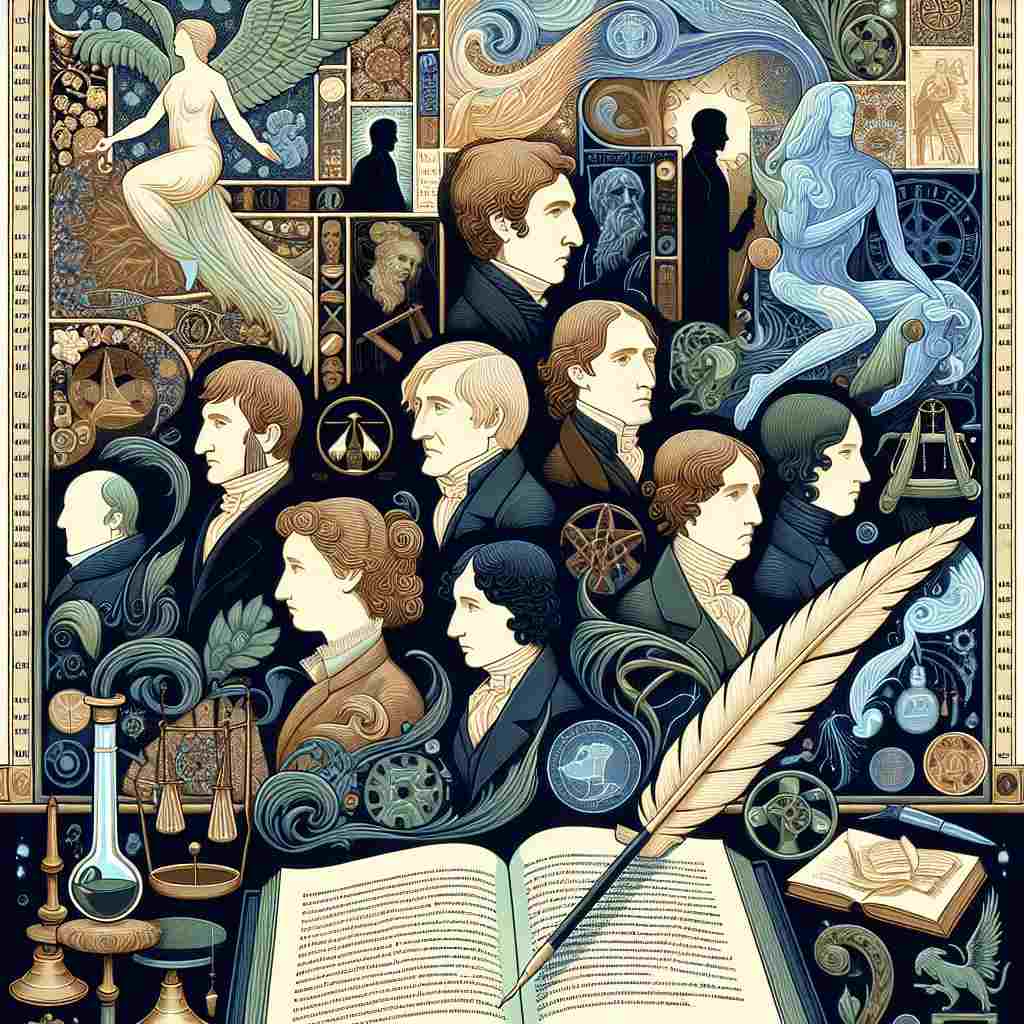British literature and philosophy have been cornerstones of intellectual and cultural life for centuries. From the poetic musings of the Romantic poets to the profound existential inquiries of modern philosophers, Britain has produced some of the most influential thinkers and writers in history. As a devoted enthusiast of both British literature and philosophy, I find immense joy in exploring the depths of these fields, unraveling the intricate tapestry of human thought and emotion.
The Majestic Tapestry of British Literature
British literature offers a vast and varied landscape, stretching from the epic tales of Beowulf to the modernist innovations of Virginia Woolf. Each era in British literary history brings with it unique voices and perspectives, collectively contributing to a rich and diverse canon.
The Middle Ages and Renaissance:
The roots of British literature can be traced back to the Middle Ages, with works like Geoffrey Chaucer’s “The Canterbury Tales” providing a window into medieval society. Chaucer’s vibrant characters and their intertwined stories offer not just entertainment, but also a commentary on the human condition that remains relevant to this day.
The Renaissance period heralded the arrival of William Shakespeare, whose plays and sonnets have left an indelible mark on world literature. Shakespeare’s ability to capture the complexities of human emotions and relationships, from the tragic flaws of Hamlet to the star-crossed love of Romeo and Juliet, continues to resonate with readers and audiences globally.
The Romantic Era:
The Romantic era brought a shift in focus towards nature, emotion, and individualism. Poets like William Wordsworth, Samuel Taylor Coleridge, and Percy Bysshe Shelley explored the sublime beauty of the natural world and the depths of human emotion. Wordsworth’s “Lines Composed a Few Miles Above Tintern Abbey” and Coleridge’s “The Rime of the Ancient Mariner” are exemplary works that delve into the interplay between humanity and nature, as well as the spiritual and the temporal.
Victorian and Modernist Periods:
The Victorian era, characterized by the works of Charles Dickens, George Eliot, and the Brontë sisters, brought attention to social issues and the struggles of the individual in a rapidly changing society. Dickens’ “Great Expectations” and Eliot’s “Middlemarch” offer keen insights into the social dynamics and moral quandaries of their time.
The Modernist period, with writers like James Joyce and Virginia Woolf, pushed the boundaries of narrative structure and style. Woolf’s “To the Lighthouse” and Joyce’s “Ulysses” are masterpieces that challenge traditional storytelling and delve deep into the inner workings of the human psyche.
The Philosophical Depths of British Thought
British philosophy, much like its literature, has a rich and varied tradition. It encompasses the works of seminal thinkers who have shaped the course of Western philosophy.
Empiricism and Rationalism:
The 17th and 18th centuries saw the rise of British empiricism, with philosophers like John Locke, George Berkeley, and David Hume advocating the idea that knowledge comes primarily from sensory experience. Locke’s “An Essay Concerning Human Understanding” laid the groundwork for modern theories of mind and knowledge, while Hume’s “A Treatise of Human Nature” questioned the very foundations of human cognition and belief.
Utilitarianism and Ethics:
The 19th century introduced utilitarianism, a consequentialist theory that evaluates actions based on their outcomes. Jeremy Bentham and John Stuart Mill were key figures in this movement. Mill’s “On Liberty” and “Utilitarianism” are pivotal works that explore the balance between individual freedom and societal good, and continue to influence ethical and political thought.
Analytic Philosophy:
The 20th century witnessed the emergence of analytic philosophy, with figures like Bertrand Russell and Ludwig Wittgenstein at the forefront. Russell’s “The Problems of Philosophy” and Wittgenstein’s “Philosophical Investigations” offer profound insights into language, logic, and the nature of philosophical inquiry.
The Interplay of Literature and Philosophy
One of the most fascinating aspects of British literature and philosophy is the way they often intersect and inform one another. The existential musings found in the works of Shakespeare or the moral dilemmas in Dickens’ novels often echo the philosophical inquiries of their time.
For example, the existential themes in Shakespeare’s “Hamlet” resonate with the questions later posed by existentialist philosophers like Jean-Paul Sartre and Martin Heidegger. Similarly, the social critiques in Charles Dickens’ works reflect the utilitarian concerns of Bentham and Mill.
A Lifelong Journey
Exploring British literature and philosophy is a lifelong journey that offers endless opportunities for intellectual growth and emotional enrichment. Whether delving into the poetic landscapes of the Romantics or grappling with the ethical quandaries of utilitarian thought, there is always something new to discover and reflect upon.
For anyone looking to deepen their understanding of the human experience, the works of British writers and philosophers provide a treasure trove of wisdom and beauty. They challenge us to think critically, feel deeply, and engage with the world in meaningful ways. And that, perhaps, is the greatest gift of all.


Comments
One response to “The Timeless Allure of British Literature and Philosophy”
This article beautifully encapsulates the profound impact British literature and philosophy have had on shaping intellectual thought and cultural narratives. It’s fascinating how these fields not only reflect the zeitgeist of their respective eras but also engage in a timeless dialogue with one another. The interconnectedness of literature and philosophy is indeed a testament to the richness of British intellectual tradition. For anyone new to these subjects, starting with the works mentioned, like those of Shakespeare, Wordsworth, and Hume, could offer a valuable insight into the human condition and societal evolution. For seasoned enthusiasts, revisiting these classics might reveal new interpretations and connections, especially in how they continue to resonate with contemporary philosophical and literary discussions. It’s a reminder of the enduring relevance and transformative power of these disciplines in understanding our world and ourselves.